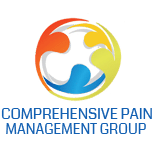Herniated Disc
There are many terms to describe spinal disc pathology and associated pain such as herniated disc, bulging disc and pinched nerve. All are used differently and at times used interchangeably.
Unfortunately, healthcare professionals do not agree on a precise definition of any of these terms, and patients may be frustrated when they hear their diagnosis referred to in different terms. The unusually wide range of terms used to describe spinal disc problems (such as ruptured disc, torn disc, slipped disc, collapsed disc, disc protrusion, disc disease, and black disc) can add to the confusion.
Pinched Nerve Vs. Disc Pain
Either of the above two conditions can occur in the cervical (neck), thoracic (upper) or lumbar (lower) spine. They tend to be most common in the lower back because the lower back bears the most torque and force on a day to day basis.
Keep in mind that all the terms—herniated disc, pinched nerve, bulging disc, slipped disc, ruptured disc, etc.—refer to radiographic findings seen on a CT scan or MRI scan. While these test results are important, they are used in tandem combined with patients specific symptoms and results of physical exam.
Treatments for Herniated Disc
The key is to seek treatment from a specialist and obtain a primary diagnosis. Conservative treatments may include simple rest and activity modification. Pain management through medication may help as well. Physical therapy and surgery maybe also be considered.
